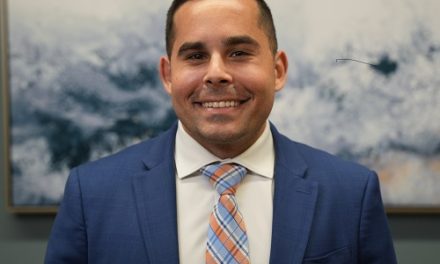By Steven G. Ullmann, PhD
What a year, actually what a two years it has been (and hopefully it is not a third year). COVID has had a huge impact on our personal lives, our professional lives, our healthcare system, our educational system. It’s interesting to think that for the past 40 plus years of my teaching and research career, that I have used an in-depth class exercise putting my students on teams in the role of a health care system C-Suite watching a Pandemic unfolding, asking the teams how they would manage, how they would lead. I could never have imagined that this exercise would become a reality.
But the issues we have been enduring for these many months provide significant insights as to how we go forward in 2022 as it emphasizes the importance of a common vision for the healthcare system and the various elements of it, the professionals who serve it and the educational process which provides concepts and critical thinking methodologies necessary to manage, to lead.
What have we learned in healthcare education as we go forward? It is imperative that we incorporate disaster preparedness and recovery in our healthcare educational programs. Thousands of healthcare organizations were completely unprepared to deal with the health crisis we just experienced. All the aspects of healthcare management and leadership become critical in times of crisis and these issues cut across disciplines in healthcare management education. Let’s step back for a moment and assess where we must adjust our thinking going forward.
The Institute for Health Improvement came out a number of years ago with the Triple Aim: Achieving a significantly positive patient experience, achieving metrics of population health, and achieving these quality metrics in a cost-effective manner. And now a fourth aim has been added and that is the quality of the work life experience of healthcare workers, administrative, clinicians, and staff. The Pandemic has truly allowed us to understand the importance of this fourth aim. As such, our courses need to reflect upon these aspects of healthcare provision as well.
So let’s begin with human resource management as there has been no greater impact of COVID than this area. Clinicians and staff were providing support to our patients when their own lives were at risk, a risk so far greater than anything we could have imagined. Employee family structures were impacted and family health issues in turn impacted the ability of health care personnel to work. Childcare issues impacted on the ability of health care workers to work when their young children were out of school. Add to this the shortage of protective supplies to keep healthcare personnel as healthy as possible, a function of a supply chain shortage and the ethics associated with distribution decisions. Human resource management, supply chain, health care ethics are all aspects of our educational programs. Resultant organizational behavior in a time of crisis becomes far more complex as structures and interactions under stress require appropriate adjustments.
Budgeting and financing, always difficult in the provision of healthcare where margins are slim to begin with, requires far more innovative thinking in terms of revenue enhancement, or at least revenue maintenance and cost containment. Hence the principles of operations research and Lean-Six Sigma methodologies of process improvement become that much more important. Flexibility and assuring the minimization of waste becomes important in times of increased financial stress. Supply chain efficiencies become critical. All must be done in a legally compliant manner, an area with greater and greater complexity.
Ultimately, we must remember that we are dealing with people: those who manage, those who provide clinical services, those who provide the support services, those that provide the medical supplies and devices, those who provide counsel and ultimately, it is our patients and their families, the people, all to be treated in a compassionate manner.
There are other areas of health care management and leadership education that will be important to address as we move into next year and beyond. Areas such as health care technology, from advances in such areas as telemedicine, finally reimbursable, to artificial intelligence (with the caveat artificial intelligence is subject to bias which must be understood). The complexity of pharmaceutical pricing, pharmaceutical research, development and production, value-based purchasing, persistent shortage of life saving drugs, questions as to how to ethically distribute, and public relations to deal with these various aspects of the industry are significant.
Ultimately, we must understand how to be strategic in our thinking. We tend to be reactionary perhaps especially given the special circumstances associated with COVID. But this is not an environment where we can be just tactical. It becomes essential to understand how the health care industry will be impacted by significant changes in demographics, the aging of our population, coupled with the increasing focus by governments to contain spending at the federal, state, and local level. These are critical elements which will impact health care providers. Further as insurance providers, and employers put increasing pressure on physicians and health care systems to provide quality care at reduced costs or to be excluded from health care networks entirely, providers will have to think about how to adjust to the health care environment … in 2022 and beyond. It is essential that health care management and leadership education reflect these needs.
Dr. Steven G. Ullmann, Professor and Chair, Department of Health Management and Policy, Director, Center for Health Management and Policy, and Special Assistant to the Provost at Miami Herbert Business School, University of Miami, can be reached at (305) 284-9920 or Sullmann@miami.edu.



























